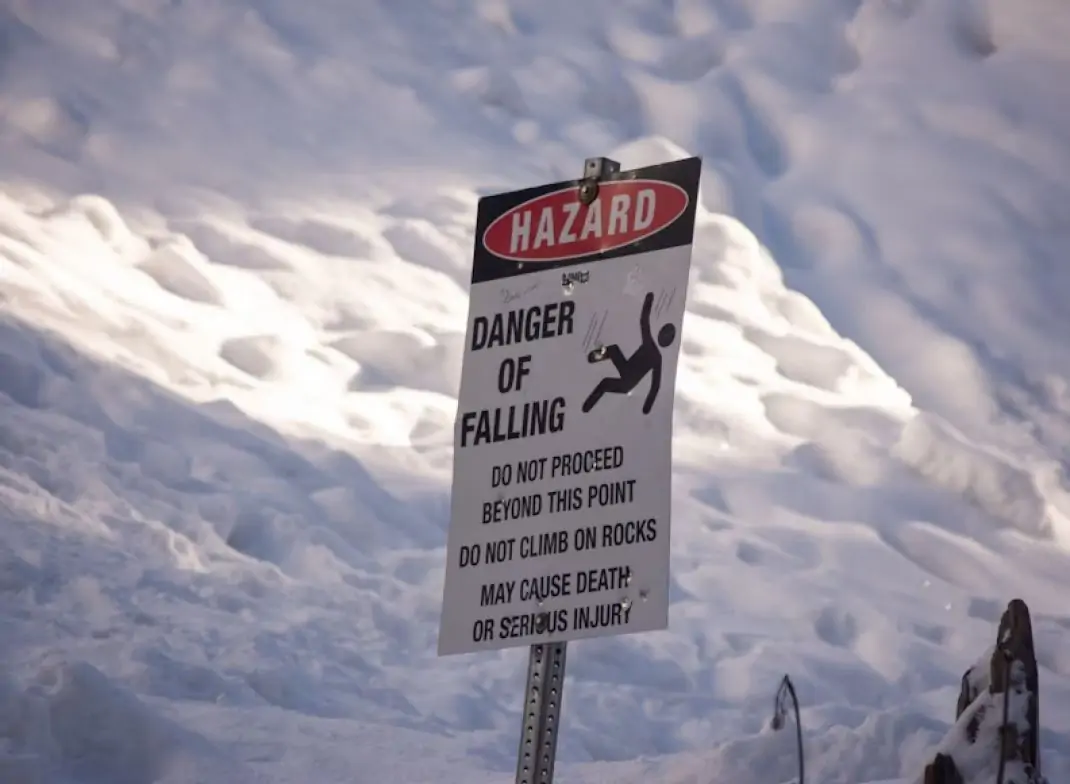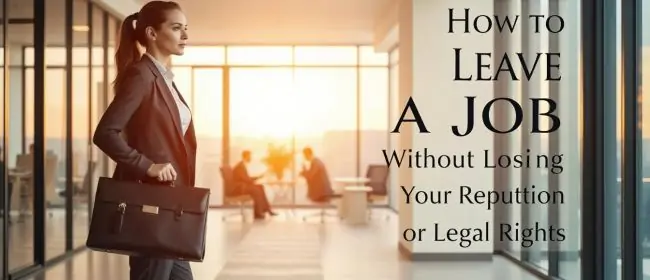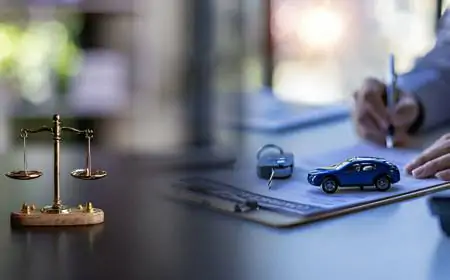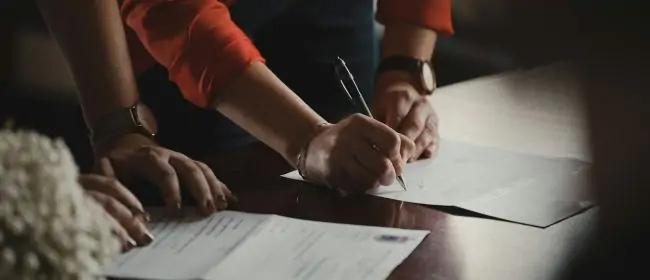https://unsplash.com/photos/a-sign-warning-of-danger-of-falling-in-the-snow-UI57LrO3A0k
Slipped on a wet floor recently and thought "that wasn't so bad, was it?"
Think again.
Slip and fall accidents are much more serious than most people realize. You get up, dust yourself off, and maybe feel a bit embarrassed. But what you may not know…
One in five falls result in long-term or recurring painful injuries that can change your life forever.
The truth is, slip and fall injuries don't just "heal and disappear". They can set off a chain reaction of health problems that can last for months, years, or even be permanent.
What you'll learn:
-
The Hidden Damage Most People Don't See Coming
-
How Your Brain Takes a Hit (Even in "Minor" Falls)
-
The Chronic Pain Trap That Catches Thousands
-
Financial Ruination That Goes Far Beyond Medical Bills
Why Slip and Fall Injuries Are More Dangerous Than You Think
Want to know something that will shock you?
Nearly 47,000 people died from falls in 2022. That's just the fatalities.
Here's the problem:
Most people focus on the immediate pain. But the real damage often comes later, in the form of complications that show up weeks or months after the fall when your body has started to break down from the trauma. When these serious injuries result from someone else's negligence, consulting with a qualified slip and fall lawyer becomes essential to protect your rights and secure proper compensation for long-term health impacts.
When you take a tumble, that violent impact sends shockwaves through your whole system. And those shockwaves can cause problems you never saw coming.
The Brain Damage Nobody Talks About
Let me tell you something most people don't realize…
Even a "simple" slip and fall can cause serious brain injuries. When your body suddenly stops, your brain keeps moving inside your skull — basically bouncing around like a ping pong ball.
You might find yourself having:
-
Memory problems that make it impossible to work
-
Trouble focusing on simple tasks
-
Mood swings that damage relationships
-
Headaches that never go away
And all these symptoms can start showing up days or weeks after your fall. By then most people don't connect it to the accident.
Brain injuries from falls are now the number one cause of traumatic brain injuries in adults. Yet most victims never get fully evaluated.
The Chronic Pain Nightmare
Here's something that will make you think twice about that "harmless" fall…
Chronic pain affects your whole life. Not just your body — your mind, your relationships, your career too.
Your muscles, ligaments, and joints take a beating when you slip and fall. And sometimes they don't heal right. Sometimes they don't heal at all.
I'm talking about:
-
Back pain that makes sleeping impossible
-
Neck stiffness that gives you constant headaches
-
Joint problems that make simple tasks painful
-
Nerve damage that causes shooting pains
But here's the thing…
Chronic pain doesn't just hurt your body. It wrecks your mind too. When you're in constant pain, your brain actually changes. You become more sensitive to pain, more anxious, more depressed.
The Hidden Psychological Damage That Destroys Lives
Want to know what doctors often miss after a slip and fall?
The psychological damage.
Falls are traumatic events. Your brain processes them as if they were life-threatening. And that trauma doesn't just vanish when your cuts heal.
Many slip and fall victims develop:
-
Anxiety about falling again
-
Depression from living with chronic limitations
-
PTSD symptoms
-
Social withdrawal
The worst part? This psychological damage often exacerbates the physical pain. When you're anxious and stressed, your muscles tense up. When your muscles are tense, everything hurts more.
The "Minor" Slip and Fall Injuries That Can Change Your Life
Slips, trips, and falls at work are the most common cause of serious workplace injuries. Many of the injuries you think are "minor" are nothing to laugh about.
Some examples:
-
A cut or abrasion that becomes infected or takes months to heal
-
Sprains and strains that cause chronic pain or lead to surgery
-
Concussions with ongoing symptoms like dizziness or headaches
-
Knee or ankle injuries requiring long recovery or limits on activity
The key to understanding why these injuries are serious is knowing they can have long-lasting impacts on your health. Your first step to recovery is understanding the severity of your injuries.
Spinal Injuries: The Life-Changers
Your spine is basically your body's main highway. When a fall damages your spine, it can affect everything below that point on your spinal cord.
Even a "minor" spinal injury can cause:
-
Herniated discs that press on nerves
-
Compressed vertebrae that alter your posture
-
Nerve damage that affects sensation
-
Muscle weakness that makes activities difficult
Here's what's really scary: 87% of fall injuries in the US lead to fatal or serious spinal cord damage.
And spinal cord injuries? They're often permanent.
A herniated disc can require multiple surgeries. Even then you may never be pain-free again. You may not be able to lift your children or work the same job anymore.
The Financial Ruination Most People Don't See Coming
Think the medical bills are the worst part?
Think again.
The cost of treating fall injuries is $50 billion per year just for non-fatal injuries. That's just the medical costs.
The hidden costs include:
-
Lost wages for months or even years
-
Career limitations if your injuries prevent you from doing your old job
-
Home modifications, like grab bars and ramps
-
Ongoing therapy costs
But the biggest financial hit? Lost earning potential.
If your fall leaves you with chronic pain or disability, you may never be able to earn the same income again. For many families, a serious slip and fall means bankruptcy.
Recovery: The Long Road Back
Want to know the truth about recovery from a serious slip and fall?
It's often longer and harder than anyone expects.
Your recovery team might include:
-
Primary care physicians
-
Orthopedic specialists
-
Physical therapists
-
Pain management specialists
-
Mental health counselors
The key is starting treatment as soon as possible. Even if you feel "fine" right after your fall, get checked out. Many serious injuries don't show symptoms until later.
A Note on Safety and Prevention
While you can't prevent every fall, there are ways to reduce your risk:
In your home:
-
Install grab bars in bathrooms
-
Use non-slip mats
-
Keep walkways clear
-
Ensure good lighting
In public:
-
Watch for wet floors and warning signs
-
Wear appropriate footwear
-
Use handrails on stairs
-
Pay attention to your surroundings
Wrapping Up
Slip and fall injuries are no joke. They can permanently alter your health, your finances, and your quality of life.
Key takeaways:
-
Get medical attention right away, even for "minor" falls
-
Document everything related to your injury and recovery
-
Don't ignore psychological symptoms
-
Know your legal rights if negligence was involved
If you've been injured in a slip and fall that wasn't your fault, don't try to fight the insurance companies alone. The long-term health effects are too serious, and the financial stakes are too high.
Your health and your future are worth fighting for.











